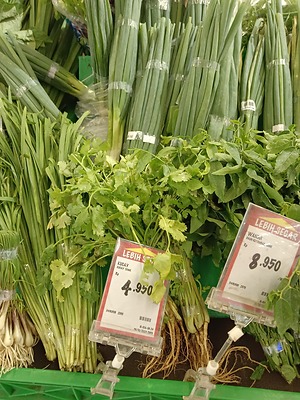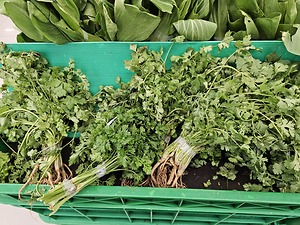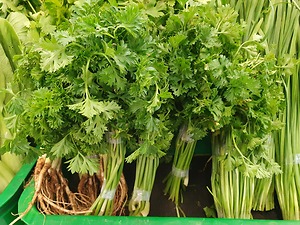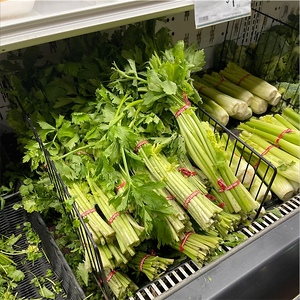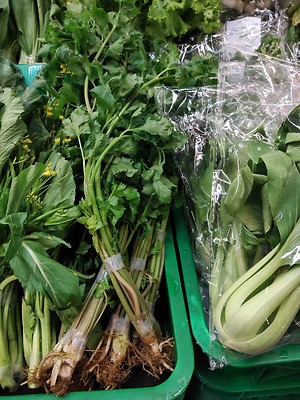


Baby Celery
Estimated Inventory, bunch : 0
Description/Taste
Baby celery is hydroponically grown, with long, thin stalks and mature, full leaves. Similar in size to cilantro or parsley, baby celery has an intense celery flavor that is much stronger than that mature celery heads. The strong celery flavor is concentrated in the leaves, though the entire plant is edible.
Seasons/Availability
Hydroponically grown baby celery is harvested year-round.
Current Facts
Its wild ancestor was called "smallage", a bitter tasting marsh plant that was used primarily as a medicine. Ancient Greeks called it "selinon" and in the ninth century, writer Strabo was the first to refer to selinon as "celery" in his poem. "Celery" comes from the French word "celeri", derived from an ancient Greek word.
Applications
Baby celery is not typically used as a substitute for mature celery because the stalks are small and thin. Use celery leaves in pestos, sauces, soups, salads or as an herb. Pair with carrots, mushrooms, asian vegetables, citrus, tomatoes, garlic and onion. Baby celery stalks may be used as an aromatic or chopped and combined with the leaves in cooked preparations. Refrigerate baby celery, keeping dry and well wrapped until ready to use.
Geography/History
Native to the Mediterranean region and cultivated over three thousand years, celery is a biennial, herbaceous plant of the Umbelliferae, botanically named Apium graveolens. A member of the carrot family and related to anise, parsley and parsnips, celery was first recorded as a food plant in France in 1623.
Recipe Ideas
Recipes that include Baby Celery. One
| Sippity Sup |
|
Baby, Oh Baby Celery Salad |
| Sippity Sup |
|
Baby Celery and Shitake Mushroom Salad with Lemon and Parmigiano-Reggiano |
| 101 Cookbooks |
|
Homemade Celery Salt |



